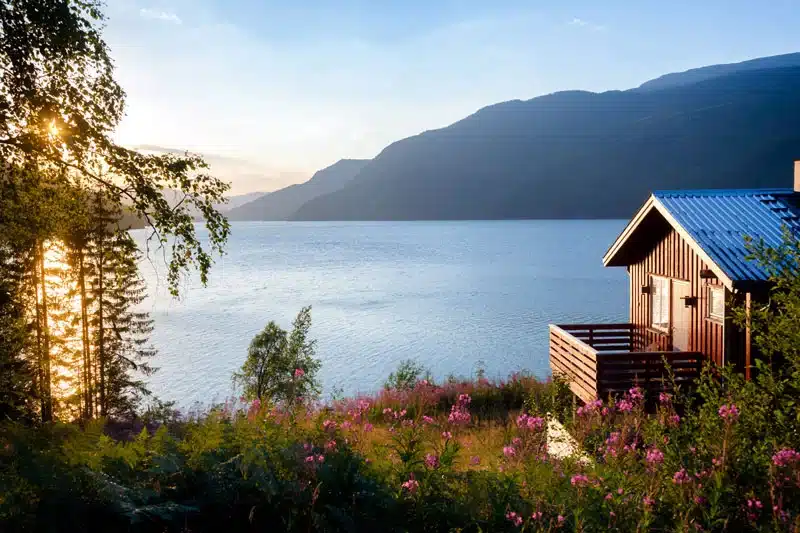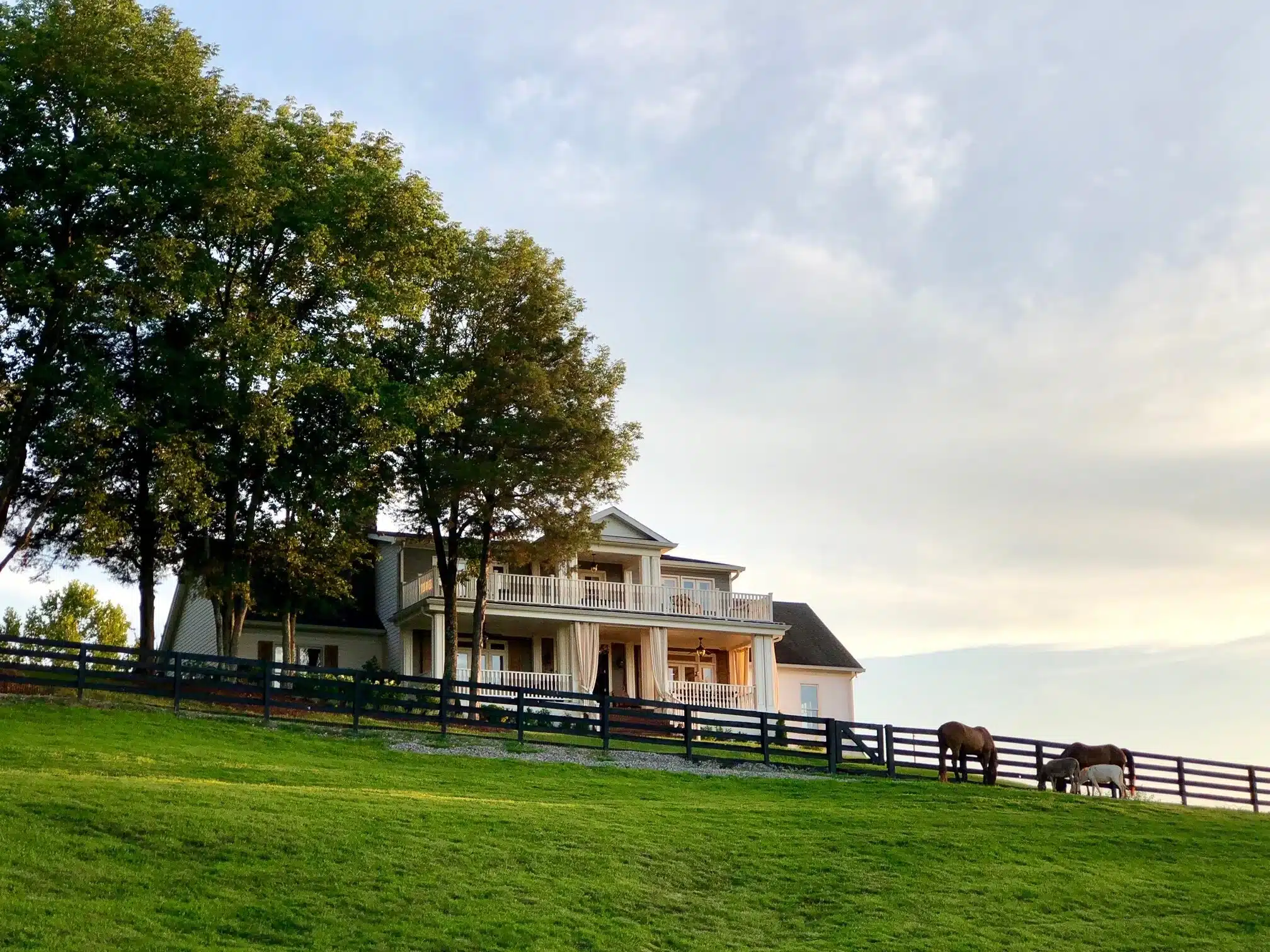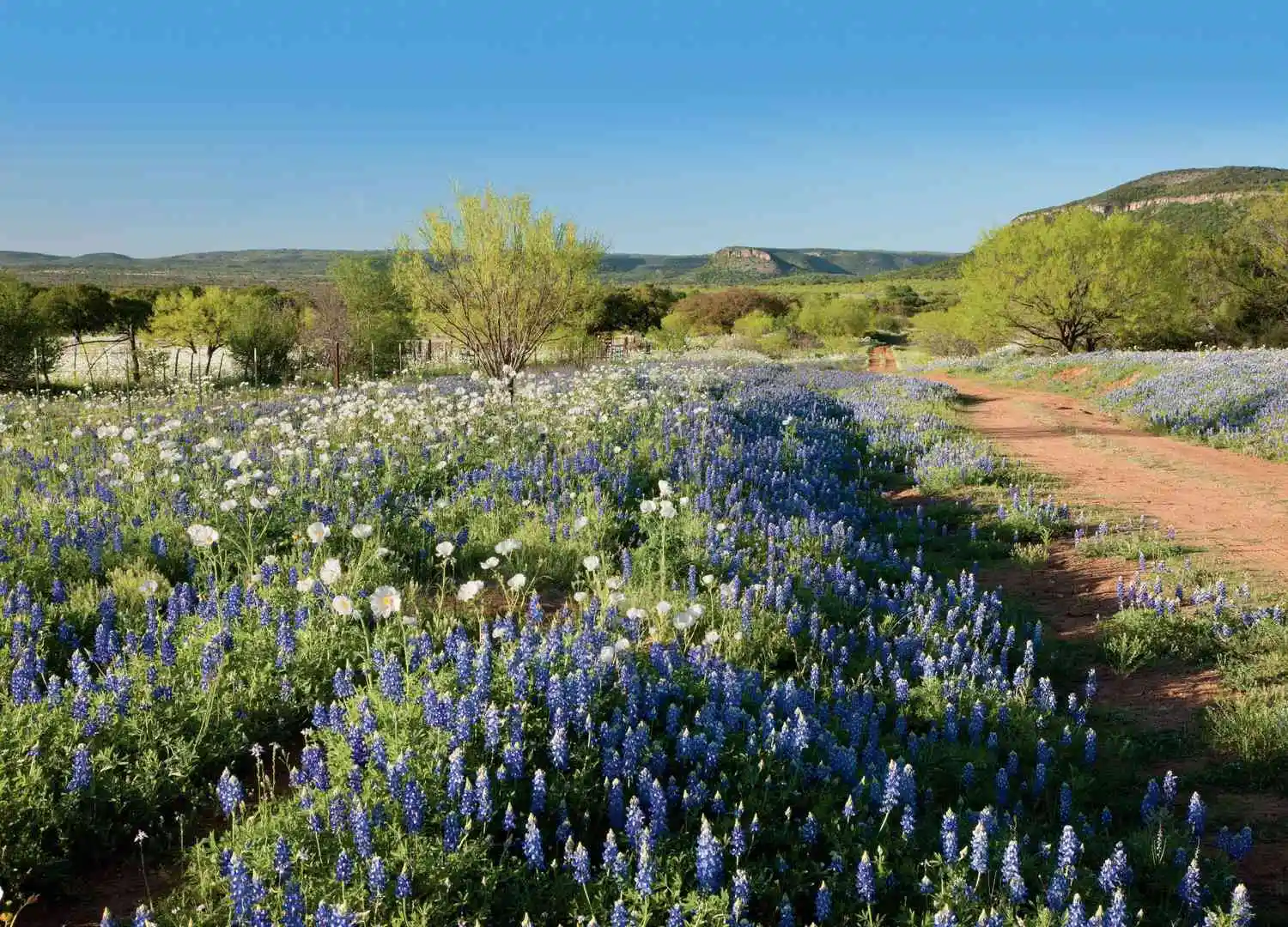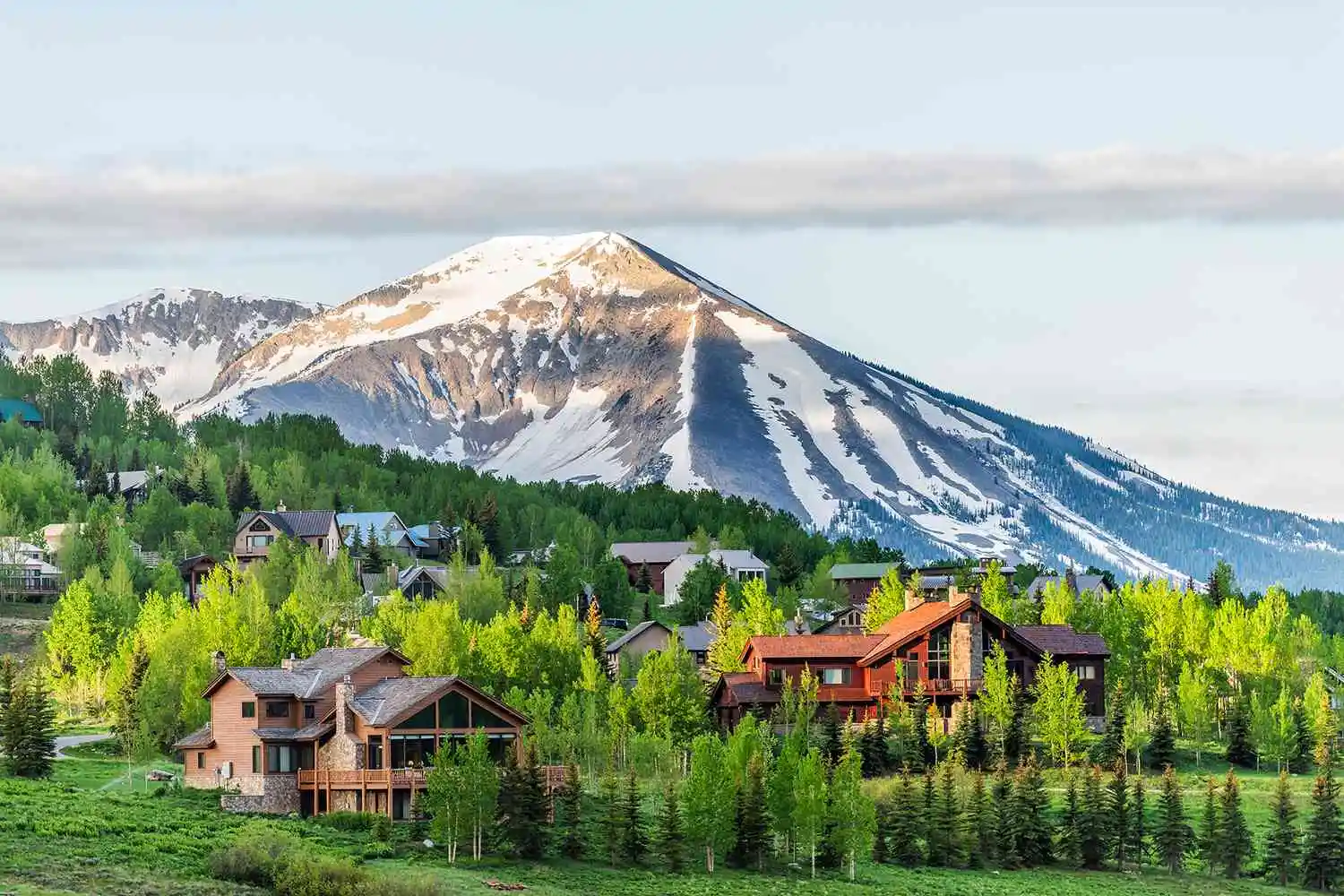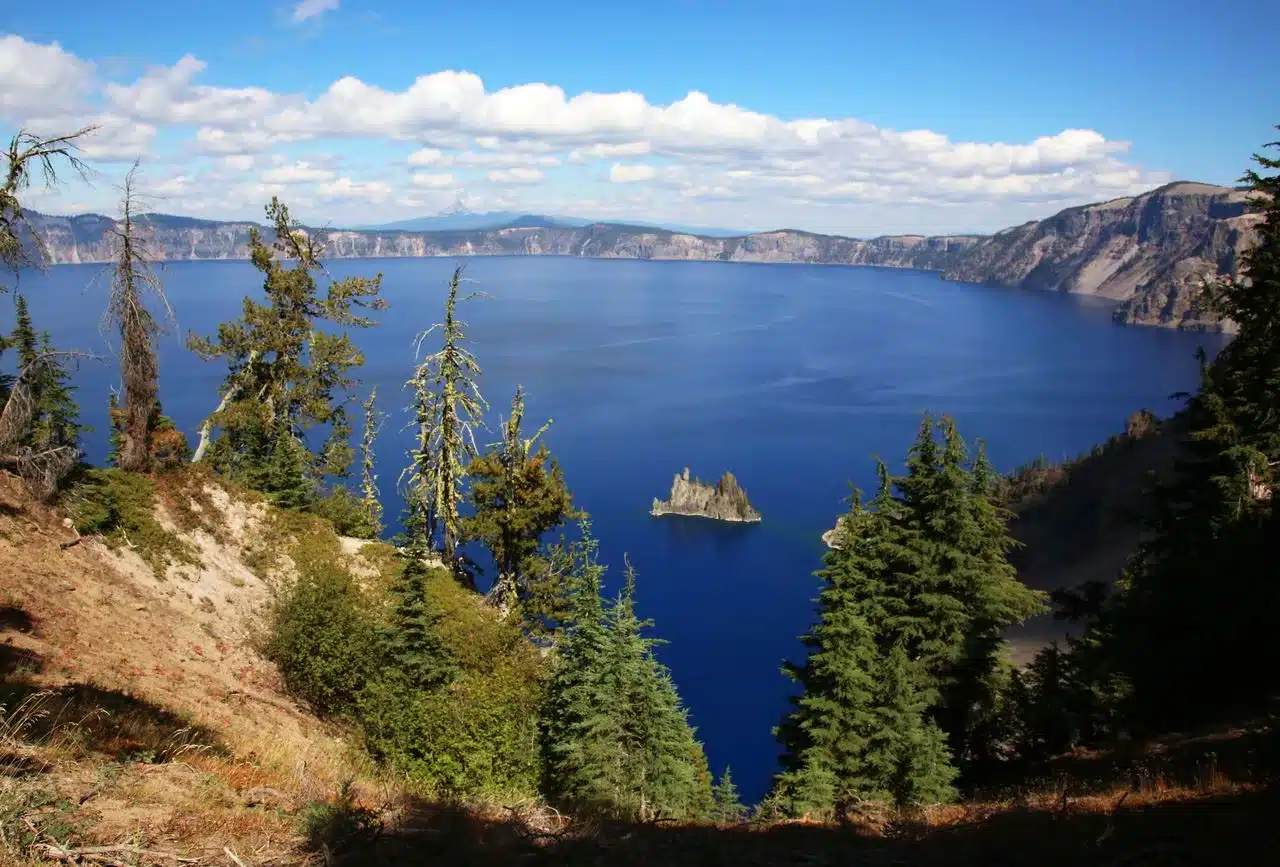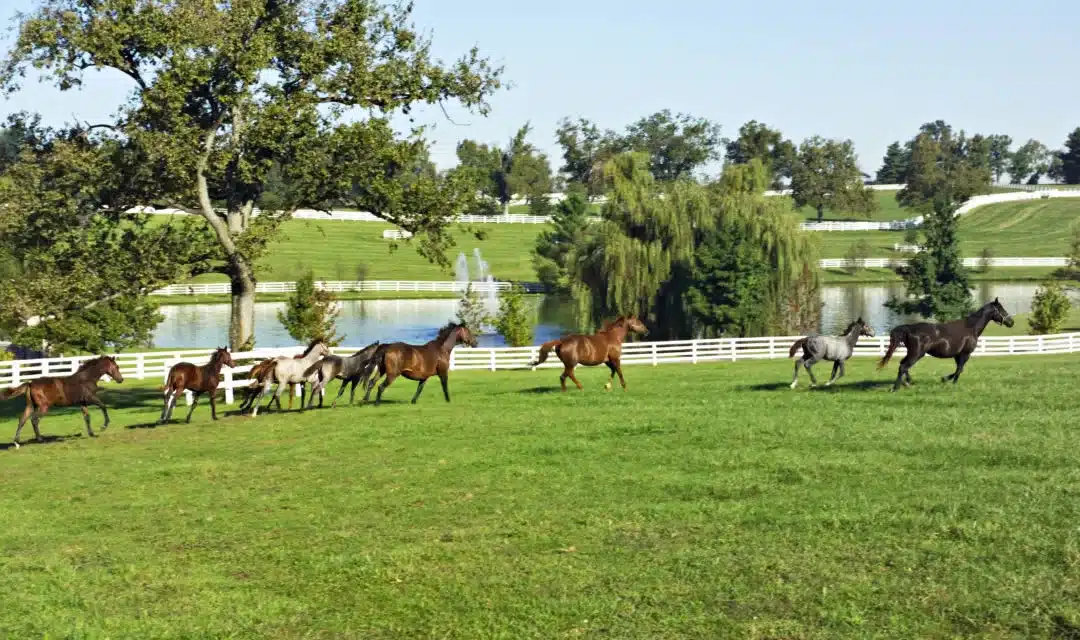Being off the grid means not being physically hooked up to utilities by wires, pipes, or cables. Off-grid homes rely completely on their energy sources, which can often be renewable energy sources such as the sun and the wind.
Choosing the right state to build off grid houses is crucial and factors like climate, water source, price of land, policies, and regulations also play a vital role. In this post, we will synthesize these factors and rate the BEST states to live off grid : Tennessee, Texas, Colorado, Oregon, Kentucky
Key Considering Factors
Climate
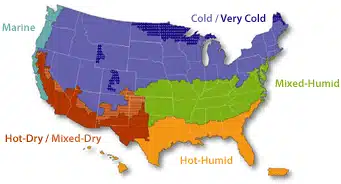
The climate of the United States varies according to geographic location. For example, California has a mild Mediterranean climate with plenty of sunshine and moderate rainfall, while Florida has a tropical climate that is humid and rainy. Places like Michigan and Minnesota have temperate climates with cold winters and warm summers. Understanding average temperatures by month and choosing the right climate is essential to a comfortable living experience.
| Climate Type | Distribution | Characteristics |
| Tropical Rainforest | Parts of Hawaii | Warm and humid throughout the year; abundant rainfall |
| Tropical Grassland | Southern Florida | Warm and humid; relatively dry winters |
| Tropical Desert | Southwest (Arizona, New Mexico, etc.) | Hot and dry summers; mild winters |
| Subtropical Humid | Southeastern U.S. (Florida, Georgia, etc.) | Hot and humid summers; abundant rainfall |
| Subtropical Steppe | Inland southeastern U.S. | Hot and humid summers; relatively dry winters |
| Subtropical Desert | Inland southwestern U.S. | Hot and dry summers; mild winters |
| Mediterranean | Coastal California | Mild and wet winters; dry and warm summers |
| Temperate Humid | Eastern and Central U.S. | Distinct seasons; warm summers, cold winters, moderate rainfall |
| Temperate Continental | Central and western U.S. | Harsh winters; hot summers; low rainfall |
| Temperate Marine | Northwest U.S. (Washington, Oregon, etc.) | Mild and wet winters; cool summers |
| Subarctic | Alaska | Extremely cold winters; cool summers |
Water Sources
The distribution of freshwater resources in the United States shows significant regional differences. The eastern region is blessed with abundant freshwater resources, such as the Mississippi River Basin, the Great Lakes region, and the Appalachian Mountains, with high rainfall, numerous rivers, dense lakes, and relatively abundant groundwater resources. In contrast, the West has relatively few freshwater resources due to factors such as arid climate and complex topography, and some areas rely on long-distance water supply and management.
The situation of freshwater resources in the central and western regions is between the eastern and western parts, mainly from rivers and lakes. Therefore, the accessibility and stability of local water resources need to be considered when choosing a settlement location, especially in the western region, where special attention needs to be paid to the management of water resources and the risk of drought.
Land Prices
Land prices vary by region. Generally, land prices are higher in urban areas, while rural or remote areas may be more reasonably priced. Find land for sale prices through real estate websites or local real estate agents.
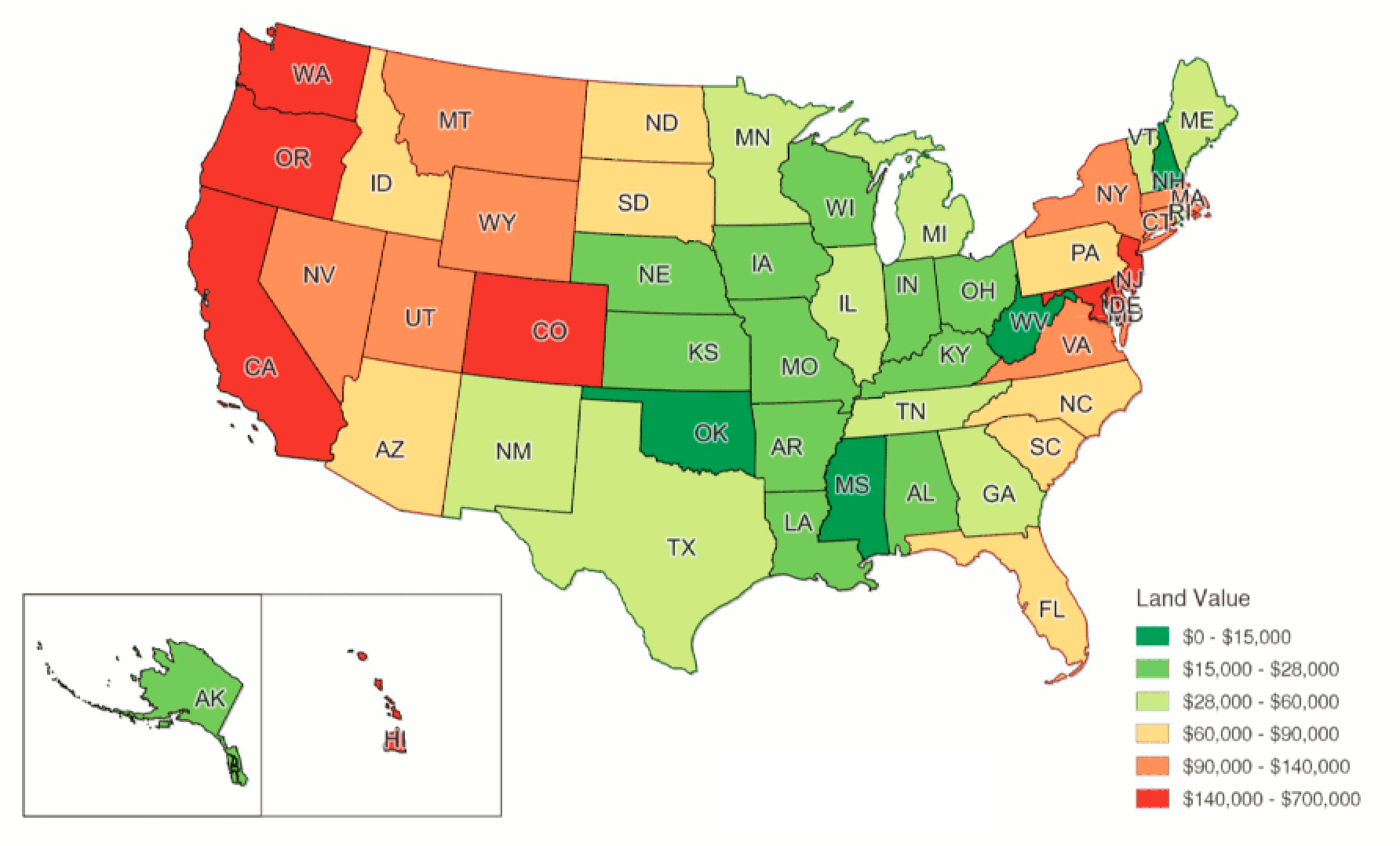
Policies and Regulations
Building codes and approval processes vary from state to state. For example, California has a more solar and green building-friendly policy, while some states may have more restrictions on off-grid construction. Choosing a state with more liberal building codes may reduce the time and cost of the approval process.
- Local Building Codes
When considering living off the grid in the United States, understanding local building codes is essential. These regulations can significantly impact your property investment, dictating materials, housing types, and construction methods allowed on your land.
Some states mandate specific materials and may restrict certain types of housing, such as tiny homes or off-grid cabins. Being aware of building codes beforehand can help avoid fines and ensure compliance with regulations. For example, if opting for solar energy, ensure your location is within a solar permitting zone and obtain project approval accordingly.
- Property Taxes
Property taxes vary across states and are influenced by factors such as land size and designated land use. Understanding the property tax implications before choosing a location to build a solar powered tiny home is crucial to avoid unexpected financial burdens.
Some states offer tax breaks for agricultural landowners, while others may impose higher rates for residential properties. It’s essential to assess the potential tax benefits or drawbacks associated with different land designations, such as agricultural or residential. Additionally, exploring options like rezoning your land can help mitigate property tax concerns.
Culture
The United States is a multicultural country with different cultural climates and neighborhoods in different regions. New York City represents a busy urban culture, while New Orleans showcases the South’s unique French, Spanish, and African heritage. Texas, on the other hand, has a strong cowboy culture, while Alaska showcases a northern lifestyle that is different from that of the continent. When choosing where to live, consider areas that match your cultural background or interests to better integrate into local community life.
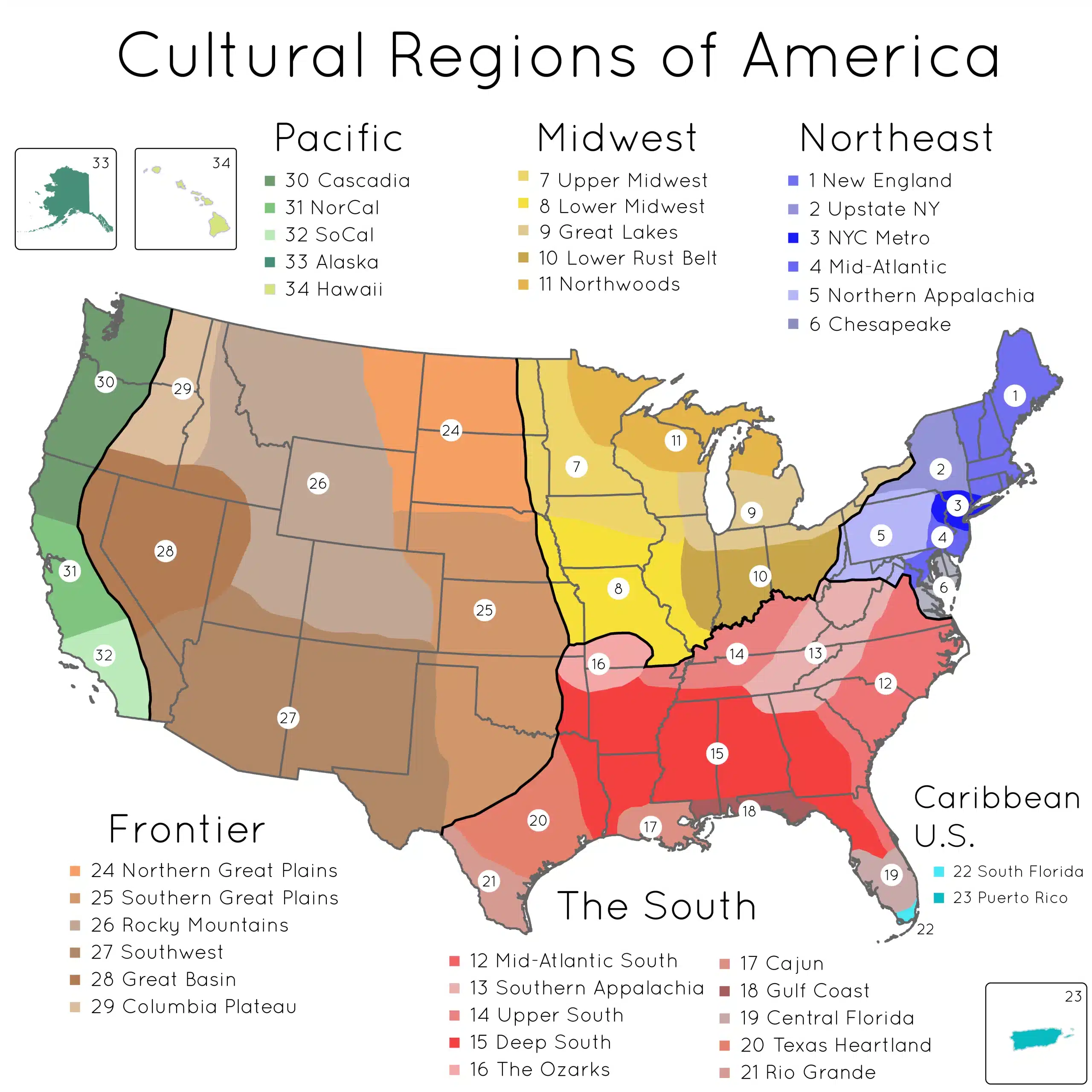
Best States to Live off the Grid
Tennessee
More lenient policies and regulations: the state of Tennessee is a top destination for off-grid living due to its lenient regulations, abundant natural resources, and low cost of living. Tennessee has some of the most liberal building codes in the country, with many rural counties having no building codes at all. This freedom allows individuals to build off-grid homes and structures without the need for permits or inspections.
Sufficient fresh water: Tennessee receives plenty of rainfall throughout the year, with an average of 52 inches per year, which provides a reliable source of water for off-grid living. Tennessee law also allows private individuals to use wells, springs, and streams on their land. The abundance of water supports gardening, livestock raising, and personal consumption, all important aspects of self-sufficient living.
Lighter Financial Burden: Tennessee’s cost of living is low compared to many other states, with reasonable prices for land, housing, utilities, and goods and services.
Lower Taxes: Tennessee has extremely low property taxes and no state income tax, which further saves money and makes it easier for individuals to live comfortably off the grid.
All things considered, Tennessee’s favorable climate, lax regulations, ample water resources, and affordable prices make it a top state for living off the grid.
Texas
Abundant Land Resources: With more than 268,000 square miles of land, much of which is rural and less densely populated, Texas offers plenty of opportunities for individuals to build self-sufficient homes away from the grid.
Plenty of light: A pleasant, sunny climate provides ample sunlight for solar power generation, with an average of more than 230 days of sunshine per year. The abundance of sunshine allows off-grid residents to generate their own electricity, thereby reducing reliance on the public grid and lowering monthly energy bills.
Laxer Enforcement: Texas has some of the most liberal building codes in the United States, allowing homeowners to build homes without a contractor’s license. This freedom allows individuals to design and build off-grid homes to their liking without much regulation or oversight.
Lower Tax Expense: Texas offers significant advantages for off-grid living, with no income tax in the state and relatively low property taxes compared to other states.
These factors, combined with Texas’ affordability and abundance of resources, make it an ideal place for individuals seeking a self-sufficient lifestyle and building off-grid houses away from the constraints of city life.
Colorado
Pleasant Environments: The state’s varied terrain, including the Rocky Mountains, highlands, and plains, provides a variety of environments suitable for different off-grid lifestyles, and it is possible to camp around and enjoy the outdoors with camping solar panels.
Lax regulations: Many counties in Colorado have minimal or no building codes, which gives homesteaders the freedom to build off-grid homes and structures without permits or inspections. This flexibility allows for alternative building methods that harmonize with the natural landscape.
Livable Climate: Colorado’s climate, especially in mountainous areas such as Rio Grande and Summit counties, has cool summers and mild winters, making off-grid living comfortable year-round. Clean energy sources such as wind and solar are readily available, further supporting a self-sufficient lifestyle.
Colorado’s abundance of federal public lands provides a wide range of space for individuals to build off-grid homes and have a better off-grid camping experience. Colorado offers plenty of opportunities for off-grid living, whether for recreational purposes, farming, or simply to enjoy the solitude of the wilderness。
Oregon
Land resources are inexpensive and plentiful: Oregon is also home to large tracts of undeveloped open space, especially east of the Cascade Mountains, which offers opportunities for individuals to build off-grid homesteads and self-sufficient lifestyles.
Climate suitable for agriculture: Western Oregon has a mild climate with an exceptionally long growing season, so Oregon will be one of the best states for homesteading for homesteaders can grow a variety of crops and live off the land.
Suitable for large-scale development: large tracts of affordable ranch land can be utilized for livestock and large-scale agriculture, while the state’s open spaces provide solitude for those seeking to escape crowded urban areas.
Regulatory Friendly: Oregon supports the development of off-grid communities with favorable regulations, making Oregon an ideal destination for individuals seeking independence from the grid. Whether it’s through renewable energy, rainwater harvesting, or sustainable energy, Oregon is an ideal choice.
Oregon is one of the best states for off-grid living due to its long growing season, abundance of open space, and suitability for establishing off-grid communities.
Kentucky
Energy Abundance: Kentucky has an abundance of wind and solar energy, and off-grid residents can access energy through solar panels or wind turbines, effectively controlling energy consumption and costs.
Scenic beauty: Kentucky’s scenic beauty and many natural wonders allow you to enjoy more of the outdoors while reducing your carbon footprint.
Privacy and Serenity: Kentucky is far from the hustle and bustle of the city. This seclusion provides unrivaled privacy and serenity in a pleasant environment that is comfortable to live in.
Kentucky offers a wealth of options for those seeking off-grid living. If you’re interested in a self-sufficient lifestyle, you can find the right environment for you in different parts of the state.
Other Popular Cities to Live Off Grid
In addition to the five cities we’ve mentioned, there are a number of other cities that offer ideal options for off-grid residents for those seeking off-grid living. New Mexico is known for its low cost of land, while Hawaii enjoys a pleasant climate and abundant water resources. Wyoming is also attractive for its low cost of land, while New Hampshire is known for its abundance of natural landscapes and water resources and is a haven for outdoor activities. Northern California has a pleasant climate and is popular for its many off-grid communities. Whether in terms of cost, freedom, water resources, agriculture or community environment, these states excel.
Is It Against the Law to Live off the Grid?
Living off the grid isn’t illegal in any of the 50 states in America. While living off-grid is not strictly illegal, essential infrastructure aspects like water, sewage, power, heat, and food supply are either regulated or restricted in various ways. Taking your house off-grid is technically allowed, but it’s essential to understand local regulations. However, there are various laws and regulations that might impact your ability to truly live off-grid. Let’s explore some specifics:
Alabama:
- Electricity: Disconnecting from the power grid in Alabama is technically illegal. Additionally, Alabama Power charges a high fee for using solar power, making it one of the worst states for off-grid solar.
- Water: Harvesting rainwater is legal in Alabama, and rules regarding water use on your property are relaxed.
- Waste: Pit toilets and portable toilets may be allowed in rural regions, and compost toilets are explicitly addressed.
Alaska:
- Electricity: Alaska has progressive microgrid laws, allowing individuals to qualify as a “utility provider” and disconnect from the main electric grid. However, off-grid solar may not be feasible in areas with limited daylight during winter.
- Water: Rainwater harvesting is allowed, but there are rules regarding groundwater use.
Australia:
The good news is that it is not illegal to live off the grid in Australia. If you want to operate independently of the national energy grid, it is completely legal and possible.
FAQ
What does it mean to go off the grid?
Going off-the-grid refers to disconnecting from public utility services such as electricity, water, and gas. It involves relying solely on self-generated resources for one’s energy, water, and other needs, often to achieve greater self-sufficiency and reduce reliance on traditional infrastructure.
What is being off-grid?
Being off-grid means living in a self-sustaining manner without relying on public utilities. This typically involves generating one’s own power, collecting and purifying water, and managing waste independently of municipal services.
What does it mean to be off-grid area?
An off-grid area is a location or region where the infrastructure for public utilities such as electricity, water, and sewage systems is absent or unreliable. Residents of these areas often rely on alternative methods for meeting their basic needs.
What does off-the-grid mean slang?
In slang terms, “off-the-grid” can sometimes refer to someone or something unconventional or outside of mainstream society. It may imply a desire for independence or non-conformity.
What is the meaning of living off the grid?
Living off the grid entails adopting a lifestyle that minimizes dependence on public utilities and traditional infrastructure. This can involve using renewable energy sources like solar or wind power, harvesting rainwater, and employing sustainable practices to meet daily needs.
Why do people go off the grid?
People choose to go off the grid for various reasons, including a desire for self-sufficiency, environmental concerns, disillusionment with mainstream society, or a wish to simplify their lives. Some seek greater autonomy, while others aim to reduce their ecological impact or prepare for emergencies.
For more off-grid information:
Affordable RV Parks Under $500 a Month in Florida- 2024 Guide | Best State To Live Off Grid 2024 | Explore the Great Outdoors: 5 Best RV Parks in Virginia for 2024 | Off Grid Camping 101: Everything You Need to Know | Explore Long Term RV Parks near me in North America | 5 Best Places to Camp in Southern California:2024 Guide | 7 Best Camping Places in Bay Area 2024

